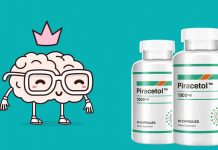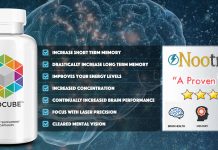
Have you ever wondered what it would be like to give up drinking alcohol? Some people make the decision to stop drinking for a month, a year, and even for the long run. Whatever your reason or timeline, remember you’re not alone! It is important to educate yourself on the health benefits of quitting alcohol, which are abundant.
WEIGHT LOSS
Cutting alcohol from your diet can have a huge impact on your waistline. Calories derived from consuming alcohol are considered ‘empty calories,’ – those that have no nutritional value. Further, because the human body cannot store alcohol, it is immediately burned for energy. As such, alcohol consumption disrupts other vital processes the body performs, including fat burning and nutrient absorption.
Quitting alcohol entirely will likely lead to a healthier overall diet. According to the National Institutes of Health (NIH), a recent study revealed that an increase in alcohol consumption was directly linked to a decreased quality diet. With increased weight loss, numerous benefits result. A few of the most important include a reduction in the risk of developing Type II diabetes, heart disease, stroke, and high blood pressure.
BETTER SLEEP
Abstaining from alcohol will lead to a better night’s sleep. Although alcohol is used by many as a sleep aid, it disrupts your sleep cycle and depletes both the quality and quantity of your rest. While alcohol does reduce your sleep onset latency (thus helping you fall asleep faster), a rebound effect is likely to occur. After consuming alcohol, you may experience deeper sleep early on in the evening. However, as the liver metabolizes the alcohol and its effects wear off, you’re likely to find yourself with frequent awakenings during the second half of the night and early morning.
Increased alcohol consumption is also directly linked to a reduction in rapid eye movement (REM) sleep. According to research in Science, REM sleep is restorative and associated with information processing, as well as maintenance of neural pathways. Without adequate amounts of REM sleep, your motor skills, concentration, and memory are all likely to be affected. Other alcohol-related sleep disruptions include an increased risk for snoring, sleep apnea, sleep walking, sleep eating, and frequent urination.
GLOWING SKIN
Want to look younger? Put down your alcoholic beverage! Consuming alcohol is especially hard on your complexion. As a diuretic, alcohol reduces the level of ADH (anti-diuretic hormone) circulating in the body, thus causing the kidney to not reabsorb water. This dehydration leads to premature aging of the skin, including the formation of wrinkles and a loss of elasticity. Additionally, alcohol’s inflammatory effect will cause redness of the skin, which can become permanent if prolonged. Unfortunately, that’s not it! Alcohol also dilates the pores on the skin, leading to congestion and often times cystic acne.
YOUR LIVER WILL THANK YOU
The liver is the largest internal organ with a variety of functions. Most importantly, the liver acts as a detoxifier for the human body. The liver’s primary purpose is to filter blood and rid the body of waste products. Once alcohol reaches the bloodstream, it is ultimately metabolized by your liver. The liver utilizes enzymes to break down alcohol molecules into a chemical called acetaldehyde. Acetaldehyde is toxic to the human body. With too much alcohol consumption, excess acetaldehyde will damage the liver. Thus, extensive alcohol consumption can lead to fatty liver disease, alcoholic hepatitis, hepatic encephalopathy, liver cirrhosis and liver cancer. The good news, however, is that the liver is a resilient organ and damage is often reversible. Quitting alcohol can have an almost immediate positive effect on the health of your liver.
MENTAL CLARITY
Perhaps the greatest benefit of quitting alcohol is the peace of mind! After taking your first sip of an alcoholic drink, your brain chemistry will start to change. At the cellular level, alcohol affects the neurotransmitter dopamine, which plays an important part in mood regulation as well as the reward center of your brain. Although you may initially feel less anxious and more confident, this is likely to change with each added drink. Continued drinking can lead to severe feelings of depression and anxiety. Furthermore, alcohol contributes to increased aggression, mood swings and ultimately the deterioration of one’s morals.
Cutting alcohol out can help resume normal brain function, although the timeline at which each region recovers differs. The areas of the brain that respond fastest to an absence of alcohol include the cerebellum and the hippocampus. After quitting alcohol, you’re likely to notice an immediate difference in your motor functions. High cognitive skills, however, may take more time to recover.
Read our full review about one of the best nootropic supplements: Mind Lab Pro



























